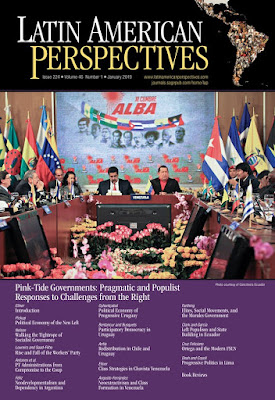Neodevelopmentalism and Dependency in Twenty-first-Century Argentina: Insights from the Work of Ruy Mauro Marini
by Mariano Féliz
For Ruy Mauro Marini, writing in the mid-1990s, neodevelopmentalism in Latin America ended with the moratoria on debt repayment in Mexico and Brazil in the early 1980s, which ushered in an era of International Monetary Fund control. For him this demonstrated the inability of the Latin American bourgeoisie to achieve autonomy at the international level. Neodevelopmentalism returned in early-twenty-first-century Argentina in the local context of a new class politics and a wider context marked by the emergence of China in the world economy and the influence of Chavismo. It consisted of an economic policy that consolidated the new hegemonic groups led by transnational capital through the superexploitation of labor and nature and the revival of the myth of development expressed by the notion of “growth with social inclusion.” For a time the project was characterized by high rates of profit and high levels of (albeit precarious) employment, but, as the global crisis of 2008 revealed its limitations and the “fine-tuning” of economic policy produced a decline of real incomes and consumption, it led to fragmentation of the political spectrum and a realignment of its principal actors. Mauricio Macri’s election to the presidency in 2015 represented a counterrevolution that, as Marini predicted decades ago, would involve more violent superexploitation and stronger imperialist influence.
CONTINUE READING THE FULL ARTICLE HERE


No comments:
Post a Comment